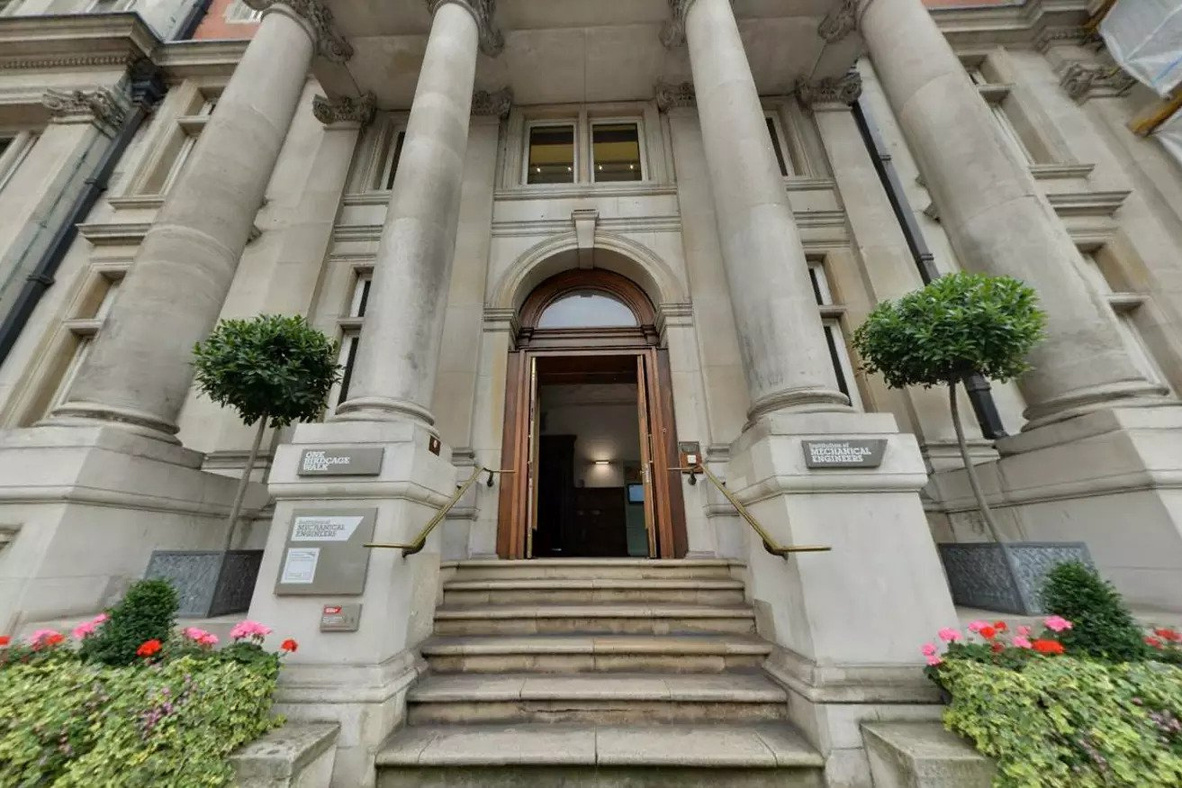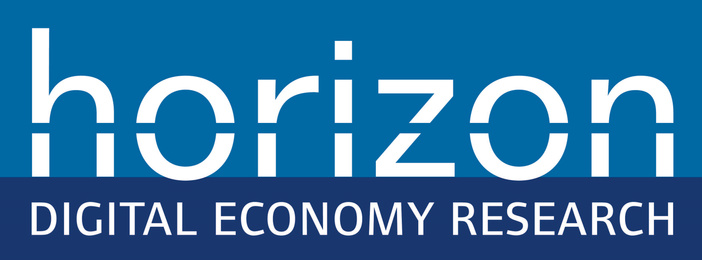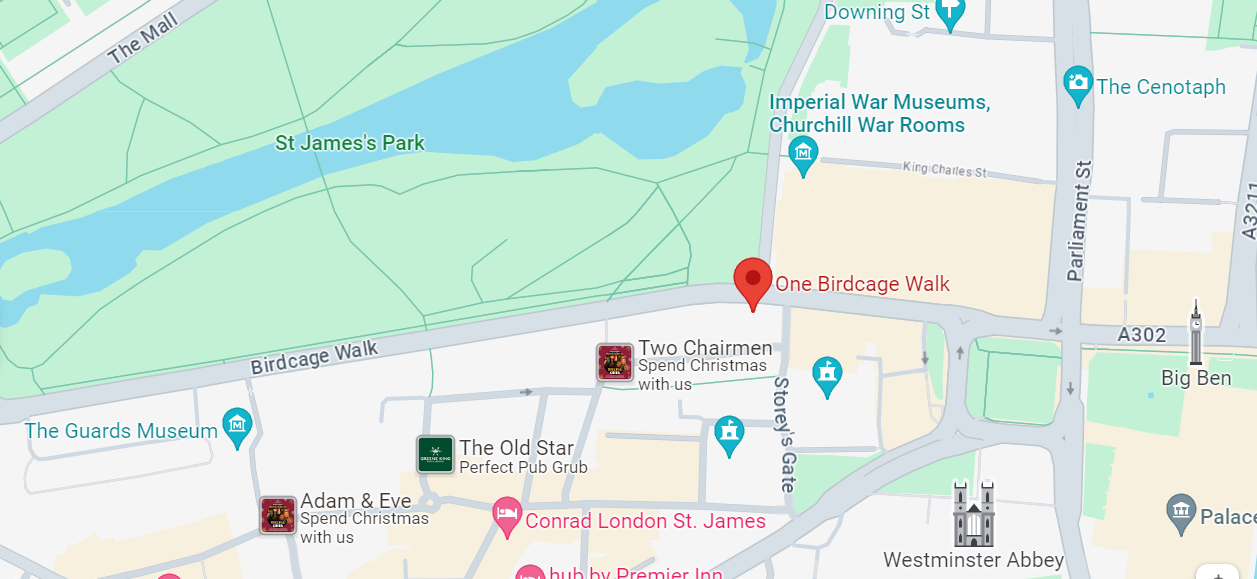


10th June 2024
One Birdcage Walk, London
Showcasing the impact of Socio-technical Research for the Digital Economy

Showcasing the impact of Socio-technical Research for the Digital Economy
This event took place on the 10th June 2024 and this video provides a summary of the day.

Showcasing the impact of Socio-technical Research for the Digital Economy
For over a decade, UKRI’s Digital Economy (DE) Theme has invested in a programme of funding to support research in the UK to rapidly realise the transformational impact of digital technologies on community life, cultural experiences, future society and an innovative economy.
The Digital Economy Next Stage Symposium will showcase outputs and impacts of socio-technical research in the UK from six Next Stage DE centres; who have been looking at ways to harness digital technologies for our economy, our communities, our cultural lives, and our health and wellbeing.
This public, free-to-attend symposium will highlight the programmes’ research. Bringing together researchers with businesses, government bodies, charities and public organisations, where attendees will discover the real-world impacts and direct, practical applications of DE research.


What to expect

What is the future of the Digital Economy?
How can content be created equitably and sustainably?
Can you trust what you see on the internet?
A defining feature of the Digital Economy Theme has been the way that it brings researchers together to explore these questions, across a wide range of disciplines; connecting engineering, computing and mathematical sciences with the social sciences, the arts and humanities and beyond.
Programme
9:00
Arrival and tea and coffee
9:30
Welcome from Prof. Richard Harper
9:35
Keynote Speaker - Prof. Yvonne Rogers
10:15
Digital Economy Next stage Centres
Future Places
| DIGIT Lab
| DECaDE
11:20
Break
11:40
Digital Economy Next stage Centres
Camera |
Horizon
| Centre for Digital Citizens (CDC)
12:45
Key note speaker - Lord Chris Holmes
13:00
Lunch -
Opportunity to network, see demos and posters
14:10
Panels
- Equitable and Sustainable Digital Society (Theatre)
- Beyond the Data Driven Economy (Council Room)
15:05
Panels
- Content Creation and Consumption (Theatre)
- Trust Identity Privacy Security (Council Room)
15:55
Break
16:15
A UKRI perspective on a Digital Future - Prof Christopher Smith
16:30
Plenary discussion
17:15
Closing comments

Keynote speaker
Yvonne Rogers is a Professor of Interaction Design, the director of UCL Interaction Centre and a deputy head of the Computer Science department at University College London. Her research interests are in the areas of ubiquitous computing, interaction design and human-computer interaction. A central theme of her work is how to design interactive technologies that can enhance life by augmenting and extending everyday, learning and work activities.
Professor
Yvonne Rogers
Director
UCL Interaction Centre

Lord Holmes
Chris Holmes passionately advocates for technology diversity and inclusion, focusing on digital tech for public good, particularly in AI and blockchain, including areas like Fintech and Trade. In Parliament, he specializes in tech legislation, introducing a bill for AI regulation and contributing to the groundbreaking electronic trade documents Bill.
Chris co-authored House of Lords Select Committee Reports on democracy and digital technologies [2020], AI [2018], and digital skills [2015]. He published a report on government testing blockchain solutions for policy delivery [2017] and advises several Tech and Fintech companies.
In the realm of inclusion, Chris authored reports on accessibility, support for disabled students, and Lords reports on financial exclusion [2017], social mobility [2016], and the Lord Holmes review on public appointments for disabled people.
As an ex-Paralympic swimmer, Chris won 19 gold, five silvers, and one bronze medal, including a record six golds at Barcelona 1992. He continues to advise the government on diversity and inclusion.


Lord
Chris Holmes
of Richmond MBE
UK Parliament
Panellists
The Digital Economy Next Stage Centres focus on the 5 themes of the Digital Economy and experts from industry, academia and funding bodies will share their views on the direction of these themes and invite you to ask questions.
Equitable & Sustainable Digital Society
Rhia will be joined by other panelists
14:10-15:00 in the Lecture Theatre
Dr Helen Thornham
University of Leeds
Dr Bruna Petreca
Royal College of Art
Dr Clara Crivelaro
Newcastle University
Rhia is a UKRI Future Leaders Fellow, establishing and leading a research centre focused on building desirable and resilient public media futures. Prior to this she led the Responsible Innovation programme in BBC R&D where she collaborated with academic and industry partners to deliver well-timed research to inform technology, policy, and strategy.
Rhianne holds a PhD in digital media and society, an MA in social research and professional qualifications in data, law, policy, and regulation and AI ethics and society. Rhianne currently leads the BBC’s engagement with the AHRC BRAID programme, the ESRC Digital Good Network and the EPSRC Centre for Digital Citizens. She also holds strategic advisory roles for the UK TAS Hub and Horizon Digital Economy Research Institute.
Chair
Rhia Jones
Damien will be joined by other panelist,
Michael Evans (BBC R&D, Kirsten Cater (University of Bristol), Darren Cosker (Microsoft) and Cathy Kerfoot, UKRI)
Beyond the Data Driven Economy
14:10-15:00 in the Council Room (2nd floor)
Dr Neelima Sailaja
University of Nottingham
Rashik Parmar
CEO British
Computing Society
Prof .Mike Fraser
University of Bristol
Chair
Prof. Roger Maull
Roger Maull is Professor of Management Systems at the University of Exeter’s Business School and Academic Director of the Initiative for the Digital Economy at Exeter (INDEX), which is based on London’s South Bank. Prior to re-joining Exeter, he was 4 years at the University of Surrey and before that 16 years at the University of Exeter Business School.
Roger has been an investigator on 28 RCUK projects with a total value exceeding £40m. He currently has three major projects, two live UKRI research grants and a third award funded by DSTL.
Roger is one of the core team for the UK’s Defence Data Research Centre (DSTL funding £4m) based at Exeter. This is investigating the use of data in the MoD and focused on cultural and behavioural challenges.
Roger will be joined by other panelists
Content Creation and Consumption
Damien will be joined by other panelists
15:05-15:55 in the Lecture Theatre
Mike Evans
BBC R&D
Prof. Kirsten Cater
University of Bristol
Darren Cosker
Microsoft
Cathy Kerfoot
UKRI
Chair
Prof. Damian Murphy
Damian Murphy is Professor at the University of York, UK, where his research focuses on the development and creative application of immersive audio and virtual acoustic modelling.
He is the Director of both the XR Stories Creative Industries R&D Partnership and EPSRC XR Network+ Digital Economy project.
He is also a Co-Investigator on CoSTAR Live Lab, all exploring the next generation of convergent immersive and interactive media technologies for the UK’s creative industries and wider digital economy.
Trust Identity Privacy Security (TIPS)
Gerard will be joined by other panelists
15:05-15:55 in the Council Room (2nd floor)
Prof Ben Azvine,
Head of BT
Global Security
Mark Elliot
SPRITE+
Lynne Coventry
Abertay University
Gerard is a Full Professor in Telecommunications Engineering and has been Head of School of Computing Sciences at the University of East Anglia (UEA) from 2016-2023 which involved a range of senior management roles and responsibilities covering Teaching, Research, Innovation and Outreach.
He holds a PhD in Self-Stabilising Protocols from Ulster University, and one of the founding Fathers of the Internet (Professor Jon Postel) as a Visiting Research Scientist at the DARPA/University of Southern California Information Sciences Institute in Marina Del Rey, LA.
Chair
Prof. Gerard Parr MBE
Digital Economy Next Stage Symposium
Registration now closed
10th June 2024 - 09:00-17:30
One Birdcage Walk, London
There are a few remaining tickets, please contact us at eventsteam@de-nexus.com if you would like a ticket

Digital Economy Theme
UKRI (UK Research and Innovation) invest in research and innovation to enrich lives, drive economic growth, and create jobs and high-quality public services across the UK.

The digital economy (DE) theme was led by the Engineering and Physical Sciences Research (EPSRC), part of UKRI, and focused on supporting research to rapidly realise the transformational impact of digital technologies on aspects of community life, cultural experiences, future society and the economy.
The themes also addressed the challenge of how the novel design and use of digital technologies can contribute to an innovative, healthy economy and inclusive society.
The five priority areas and are at the heart of digital economy research:
Trust, identity, privacy and security
Content Creation and consumption
Beyond a data driven economy
Sustainable Digital Society
Equitable Digital Society
EPSRC themes will continue to take the digital economy approach to user involvement, actively incentivising interdisciplinary working and true co-creation with potential users of research, where appropriate. Digital economy will actively be promoted through recent investments, including the 6 next stage centres, 5 Network Plus grants and 7 Equitable Digital Society grants.
Digital Economy Centres
The 6 Digital Economy Centres across the UK have focused their research across the 5 themes and are excited to share their research and the impact that it has had on society.
The Centre for the Analysis of Motion, Entertainment Research and Applications (CAMERA) performs world-leading research in Intelligent Visual and Interactive Technology, underpinned by academic and partner expertise across both core EPSRC research disciplines – Computer Vision, Graphics, Human Computer Interaction and AI – as well expertise in healthcare, rehabilitation, biomechanics, musculoskeletal modelling, sports performance, and psychology.



The Future Places Centre builds on Lancaster University’s pioneering projects on pervasive computing, the Internet of Things and the natural environment, on ‘futures thinking’ and data science. This creates a portfolio of applied research endeavours that help the University and the communities it serves to better understand the places in which they exist.
With insights provided by everyday and state of the art computing, the FPC helps to make future places healthier spaces.



The Centre for Digital Citizens (CDC) takes an inclusive, participatory approach to the design and evaluation of new technologies and services that support smart, data-rich living, within and across urban, rural and coastal communities.
Working with citizens and key stakeholders they co-design sustainable ‘Digital Social Innovations’, bringing the benefits of the digital economy equitably to diverse communities, seeking long-lasting societal value and impact.
Digital Economy Next Stage Symposium
10th June 2024 - 09:00-17:30
One Birdcage Walk, London
Registration now closed
There are a few remaining tickets, please contact us at eventsteam@de-nexus.com if you would like a ticket








